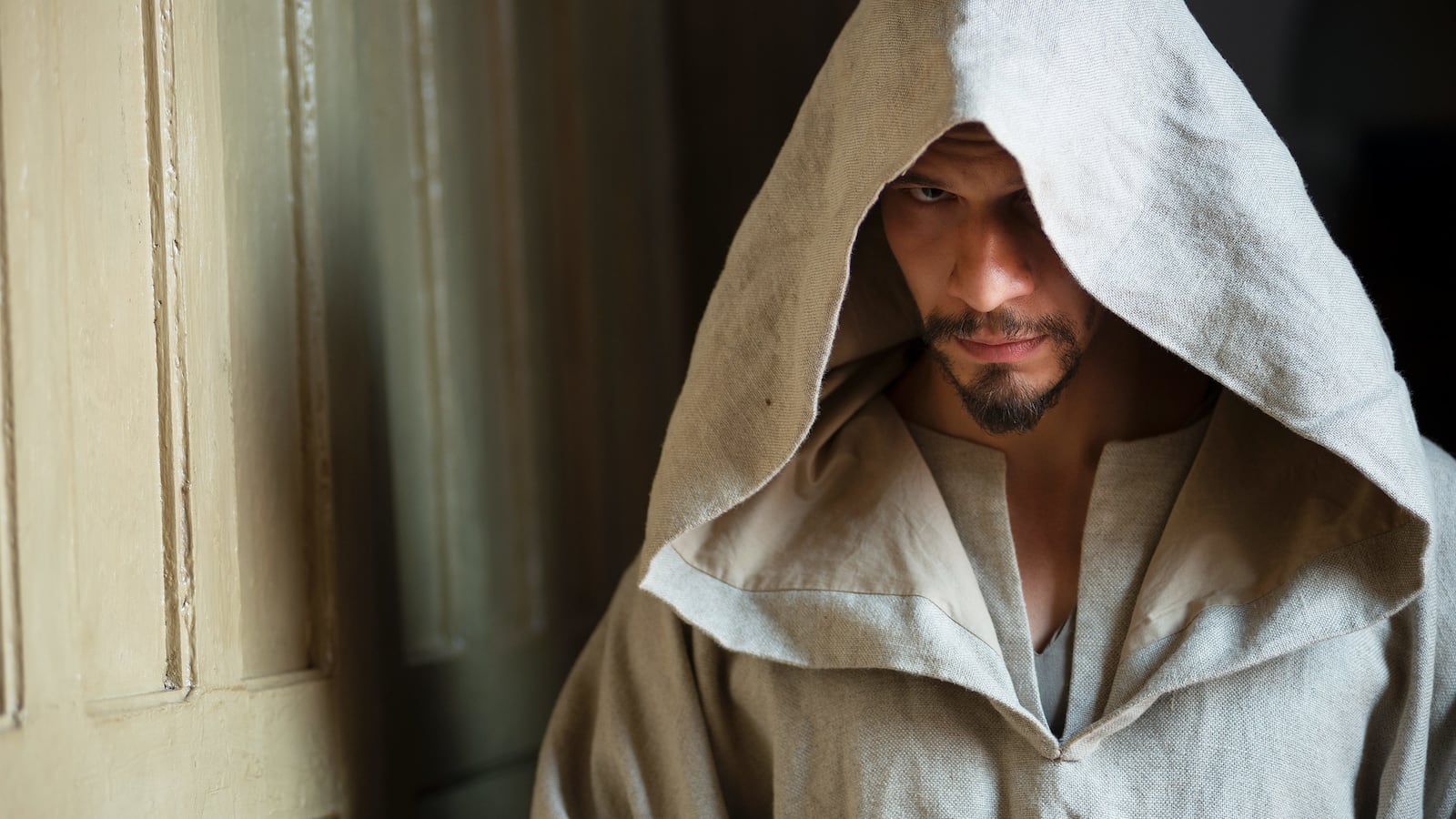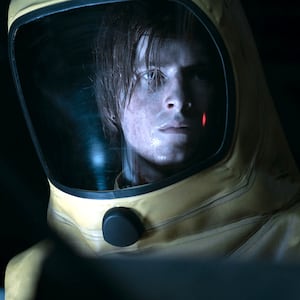Netflix is no stranger to prestige dramas and comedies, but that doesn’t mean it lacks an appetite for fast food-style genre offerings. Case in point: The Chosen One, a new Brazilian series about a divinely powered jungle cult that’s fast, funny and more than a bit outlandish.
Directed by Michel Tikhomiroff, written by Carolina Munhóz and Raphael Draccon, and based on the 2011 Mexican show Niño Santo, The Chosen One (premiering Friday, June 28) is a six-episode thriller about the battle between faith and science. However, if you’re looking for a treatise on that subject, prepare to be disappointed. Instead, that conflict is merely the driver of a routinely cheesy story about three World Heath Organization doctors who are ordered by their bosses to vaccinate against a new mutant strain of the Zika virus. Their next stop is Aguazul, a supposed “ghost village” in the Pantanal that hardly seems like a fun destination to Lúcia (Paloma Bernardi), Damião (Pedro Caetano) and Enzo (Gutto Szuster). Nonetheless, they’re committed to carrying out their duty and, for Lúcia in particular, determined to prove to their sexist superiors that they can handle such an assignment.
On the dirt road to Aguazul, Lúcia cautions Enzo against freezing up during moments of crisis, and Enzo—who’s ready to transfer to a laboratory post—tells Damião, who’s black, to go back to the hood. These conflicts take a backseat to more pressing trouble when their path is impeded by a parked bus that reads “Do Not Enter.” Since they have no other available routes, and their cellphones don’t work in this remote region (of course!), the trio set out on foot. Before long, they encounter Silvino (Francisco Gaspar), who just so happens to own a boat and agrees to ferry them to Aguazul—where, he cautions, they should prepare for a less-than-warm welcome.
Just as The Chosen One doesn’t waste time getting its protagonists to this backwater village, it immediately thrusts them into danger. After passing mysterious infinity symbols carved into trees, and murals of ancient gods on concrete walls, Lúcia, Damião and Enzo are greeted by cold stares by residents, and a health center that’s in disarray—and decorated with the graffiti message “Medicine Brings Death.” Then, they’re literally pelted with rotten fruit, chased to the pier from which they came, and shoved into the alligator-infested water. Only the fortuitous appearance of Mateus (Mariano Mattos Martins) prevents their imminent death. This local leader’s good-natured help turns out to be a ruse as well, given that, like everyone else in this enclave, he’s an acolyte of a mysterious healer known as The Chosen One (Renan Tenca).
This set-up faintly recalls that of Capcom’s classic 2005 video game Resident Evil 4, which also involved an investigation into a rural town ruled by robed cultists, and which, despite being set in an unidentified Eastern European locale, was otherwise awash in Latin American characters and language. The Chosen One, however, has its own particular lunacy to dispense. That’s evident the moment the threesome arrive at their town quarters and Lúcia emerges from a shower to talk to Mateus, a complete stranger, in a towel—a bit of unprofessional absurdity that contradicts her prior feminist attitude, but is in keeping with the material’s general goofiness.
Not a scene goes by that doesn’t feature at least three or four more editorial cuts than is necessary, and director Tikhomiroff rarely tries to gussy up the proceedings with visual flair. The Chosen One gets to the point quickly and without fanfare, the better to distract attention away from the plot’s mounting collection of illogicalities. Following some back-and-forth dialogue on the issue, it’s revealed that Aguazul’s citizens (who’ve all been branded with a cross that ends in a serpent’s tail) object to vaccinations because The Chosen One keeps them healthy. “Aren’t you interested in a place where no one dies?” asks Mateus, and initially, the doctors’ answer is no, as they can’t bring themselves to believe in such superstitious nonsense. Then, to prove his point, Mateus slits his throat in an apparent suicide, only to reappear healthy the next day. Everything rapidly goes insane from there.
“This village is crazy!” exclaims Enzo at the start of the second episode, and it’s hard to argue with him on that count. “This village resembles your typical cult,” he states shortly thereafter, and he’s right about that too. The Chosen One doesn’t mince words, nor dawdle unnecessarily. Rather, it speeds headfirst into ever-wackier areas, with Damião disappearing in the jungle and vaccinations leading to mass foaming-at-the-mouth poisonings. The Chosen One soon takes center stage so he can talk about the power he received from his Father (i.e. God) and a mythical snake that stands as his sworn enemy, as well as revive the sick by swishing blue goo in his mouth, spitting it into his hands, and smooshing it into his patients’ mouths. This doesn’t seem very sanitary, but it does the trick, thereby complicating Lúcia, Damião and Enzo’s rational convictions.

On the question of whether God or science governs the world, The Chosen One leans toward the former—mainly because it’s the only way to indulge in magical mumbo jumbo. There’s plenty of that to go around, what with every chapter stuffed full of masked rituals, armed conflicts and ominous discussions about The Chosen One’s legendary gifts. Moreover, romantic subplots materialize involving Lúcia, Mateus, and Mateus’ wife Zulmira (Tuna Dwek), as do flashbacks that bluntly elucidate Lúcia, Damião and Enzo’s backstories. Writers Munhóz and Draccon end most installments with a dun-dun-DUN cliffhanger that suggests further madness, and more often than not, they’re able to fulfill that promise.
The Chosen One has no interest in trying to strike a profound chord. Its aims are much simpler: to deliver soapy supernatural excitement with a dash of menace and sexuality via a helter-skelter package that cares more about pulse-pounding impact than subtlety. It’s not the most ambitious, graceful or original series you’ll see this year (or this month, even), but its gung-ho B-movie showmanship is also nothing to sneeze at.






